Cause for frustration for common people
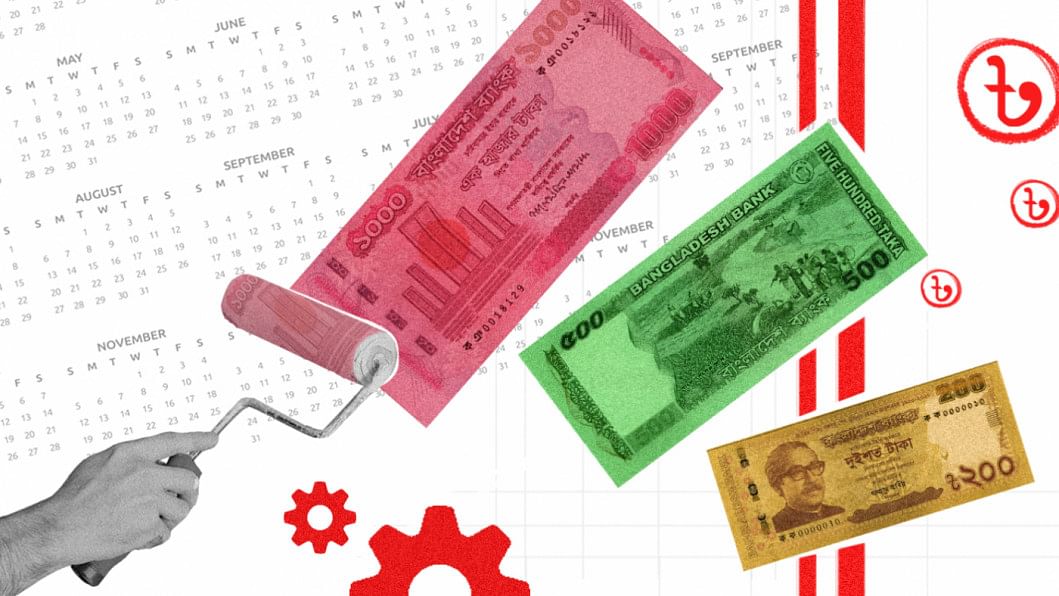
The national budget for the 2023-24 fiscal year arrives at a time when Bangladesh's comfort zone of having macroeconomic stability from strong growth and the advantage of low international prices have disappeared. Crafting a budget under the current circumstances is unquestionably difficult. Anybody sitting on the hot seat at the finance ministry would have to be juggling a lot of things around to get the equation of expenditure and income right so that it benefits people from all strata. During the ongoing difficulties, which have partly emanated from the pandemic fallout and the Russia-Ukraine war, achieving economic growth, promoting investment, creating job prospects, maintaining a stable external sector, and reducing poverty and inequality are tough. But the Herculean task is bringing down the prices of essentials and containing inflation, as the lives of poor, low- and lower-middle-income households continue to be afflicted due to high prices.
In the context of an unprecedented economic crisis, how the finance minister would design the FY2024 budget was a matter of both curiosity and worry for the citizens of the country. But now that it has been unveiled, there is not much in it to make us feel better in terms of its focus and measures.
Budget deficit and resource mobilisation
The imbalance between expenditure and revenue is a regular phenomenon in Bangladesh, which leads the government to borrow both from domestic and foreign sources. For a long time, the economy maintained its budget deficit at below five percent. In the revised budget of FY2022-23, the deficit was 5.1 percent of GDP, and the FY2023-24 budget proposes it to be 5.2 percent of GDP. What is worrying is that a big part of this deficit will be financed with resources from the banking system. The government borrowed from the banking system much more in the outgoing fiscal year than what was projected in the budget originally. It was more disturbing that the government borrowed high-powered money from Bangladesh Bank this fiscal year.
Even though the revenue shortfall in the current fiscal year was high till February 2023, and indeed the growth during July-February of FY2023 has been (-) one percent lower than the same period in FY2022, the target for FY2024 has been set at 10 percent of GDP. Achieving this growth will be challenging, given the trend of not being able to meet revenue targets over the last several decades.
With limited resources for development spending, low tax-GDP ratio, and the commitment to the International Monetary Fund (IMF) to increase revenue mobilisation by Tk 65,000 crore, the finance minister has resorted to desperate measures to generate higher revenues in the proposed budget. Hence, even though the revenue shortfall in the current fiscal year was high till February 2023, and indeed the growth during July-February of FY2023 has been (-) one percent lower than the same period in FY2022, the target for FY2024 has been set at 10 percent of GDP. Achieving this growth will be challenging, given the trend of not being able to meet revenue targets over the last several decades.
In order to achieve this target, it is crucial for the authorities to address the larger issues of expanding the tax net, exploring new sources of tax, reducing tax evasion, modernising the National Board of Revenue (NBR), and implementing e-governance. Higher revenue collection is not possible if the focus is primarily on targeting individuals and sectors that are already within the tax system. The NBR earlier identified new areas and sectors outside the existing tax net. This exercise has to be implemented through unpopular measures. As more individuals and institutions come under the purview of the tax department, tax revenue will naturally increase. Also, the current tax structure, which relies on indirect tax – which is regressive and discriminatory in nature – must be changed.
Development expenditure and ADP
The growth target of public development expenditure is slightly higher than the revised target of FY2023 as a percentage of GDP. The shortfall in implementation of development expenditure reflects the government's limited utilisation capacity. Indeed, the target for the Annual Development Programme (ADP) of the outgoing fiscal year has also been adjusted downwards. Till February 2023, the implementation of development expenditure was only 37.6 percent. Over the years, the size of ADP has consistently been around five percent of GDP, which is inadequate for propelling the country forward. This low level of public investment also hampers private investment and discourages foreign investment.
Relief from price hike?
Unfortunately, the national budget in Bangladesh has become a tool to extend benefits to wealthy and powerful groups, while ignoring the suffering of low- and fixed-income families. No wonder inequality is on the rise despite the increase in per capita income. The Household Income and Expenditure Survey (HIES) 2022 of the Bangladesh Bureau of Statistics (BBS) revealed how inequality has been on the rise since 2010. Indeed, the Gini coefficient, which is an indicator of inequality, has been rising over the years, reaching 0.499 in 2022 from 0.458 in 2010.
The government has set the inflation target at six percent for FY2024, but the proposed budget does not provide much promise for containing the inflationary pressure and giving some respite to the people from the pressure on their pockets. Unfortunately, our policymakers have been consistently blaming international prices as the culprit for high prices in the domestic market. Hence, they identify the existing high inflation, which has been hovering around nine percent throughout the year, to be an imported one. Initially, following the start of the Russia-Ukraine war, when prices were high globally, a major component of domestic inflation was external. But now everyone knows that the prices of items that Bangladesh imports have been declining on the international market consistently. Therefore, measures to tackle inflation should also be tailored according to reality.
On a positive note, the government has increased the threshold of tax-free annual income from Tk 3 lakh to Tk 3.5 lakh. But this measure will not benefit many low-income individuals as those who will avail government services need to provide proof of income tax return submission. So, in the process, they will have to pay a minimum tax of Tk 2,000 even if their annual income is lower than Tk 3.5 lakh. This contradicts the very concept of tax-free income threshold.
Time and again, the need for fiscal measures in terms of reducing value-added tax (VAT) on imported essential items for a certain period of time has been advocated. This should be bolstered by direct support measures, such as expansion of the social protection system. Measures such as open market sales of more commodities and higher allowances for the poor must be expanded both in volume and value. The poor and low-income segment of the population cannot be punished for the squeezed fiscal space that has been created due to the government's inability to enhance its revenue mobilisation efforts.
The annual budget is a tool for helping people to survive and thrive as the government presents various fiscal measures having implications for people from all walks of life. Given the current context, it was expected that the budget would focus more on addressing the critical immediate issues, while suggesting solutions for the medium term. However, the government once again expressed its obsession over growth, which is set at 7.5 percent, without any guidance on how it could be achieved in this difficult time. Ironically, people are not interested in GDP growth given that they are being choked by the upward price spiral. They only want to breathe.
Dr Fahmida Khatun is executive director at the Centre for Policy Dialogue (CPD). Views expressed in this article are the author's own.

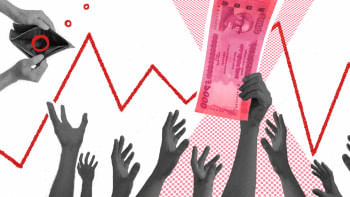
 For all latest news, follow The Daily Star's Google News channel.
For all latest news, follow The Daily Star's Google News channel. 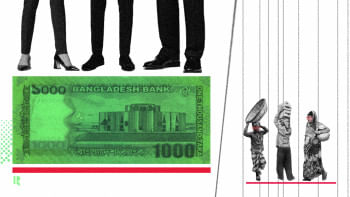



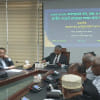
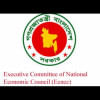





Comments